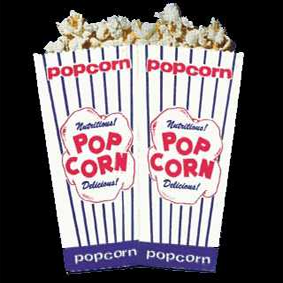I spent the five happiest years of my life in a morgue. As a forensic scientist in the Cleveland coroner’s office I analyzed gunshot residue on hands and clothing, hairs, fibers, paint, glass, DNA, blood and many other forms of trace evidence, as well as crime scenes. Now I'm a certified latent print examiner and CSI for a police department in Florida. I also write a series of forensic suspense novels, turning the day job into fiction. My books have been translated into six languages.
That’s an excellent question, that unfortunately I can’t answer. We have the OBTI test that can confirm blood is human, but beyond that…I don’t know if there are alleles that both animals and humans share that might show up in the average DNA analysis. Even if animals have some alleles that are the same as humans, if those aren’t the alleles looked for in a DNA test, then it wouldn’t affect things. But if they are, then I don’t know if scientists have a way to distinguish them. Sorry I can’t be more help!
I don’t believe there would be any summer jobs at a police department or crime lab, and internships are usually given to students who are college juniors or seniors. Though they should check with the police department, there might be volunteer or Explorer programs. Otherwise any job that involves lab work might help—not just hospitals but food or water testing sites.
Best of luck to them!
Yes, unlike what you see on television, evidence doesn’t necessarily ‘prove’ anything. It all depends on circumstances. If the victim’s blood is on the suspect’s shirt and he says he never met her, that’s vital evidence. If he found the body and tried to revive her, then it likely means nothing. Or bloodstains might tell me the victim was stabbed six inches away from the wall, but that doesn’t tell me who stabbed him. But if the perpetrator is caught and describes what happened, the bloodstains might corroborate or disprove his story. I hope that helps.
Job requirements depend on the job. Requirements might range from a HS diploma to a PhD. Check the websites of forensic professional organizations (IAI, AAFS, pathology or other disciplines) for job vacancies. I like the variability of the days.I dislike the hours, which can be unpredictable, and require being ‘on call.’
Hotel Travel Blog Active 2019
 What do you do if a guest is doing something illegal in a room?
What do you do if a guest is doing something illegal in a room?
Movie Theater Employee
 Why is movie theater food so overpriced?
Why is movie theater food so overpriced?
Aircraft Mechanic
 Did you ever catch something critical right before a plane was about to take off?
Did you ever catch something critical right before a plane was about to take off?
That would be a legal question, unaffected by forensics.
That sounds odd, but were they looking for blood or semen stains in particular, or just the DNA of whoever wore it?
At my department I mostly work with fingerprints, analyzing and comparing fingerprints that I collect off pieces of evidence or pick up at crime scenes or ones that the officers submit after they collect them at crime scenes. I will also go to crime scenes, photograph, collect prints, items of evidence, maybe test for blood or collect samples of blood with sterile swabs. There’s also a lot of time spent writing up all this information in our reports and other paperwork. If I worked in DNA or ballistics or toxicology, I would probably spend all day in the lab doing those types of analysis. So it depends on where you work, what services they provide, and what your exact position is. I hope that helps!
-OR-
 Login with Facebook
Login with Facebook (max 20 characters - letters, numbers, and underscores only. Note that your username is private, and you have the option to choose an alias when asking questions or hosting a Q&A.)
(A valid e-mail address is required. Your e-mail will not be shared with anyone.)
(min 5 characters)
By checking this box, you acknowledge that you have read and agree to Jobstr.com’s Terms and Privacy Policy.
-OR-
 Register with Facebook
Register with Facebook(Don't worry: you'll be able to choose an alias when asking questions or hosting a Q&A.)